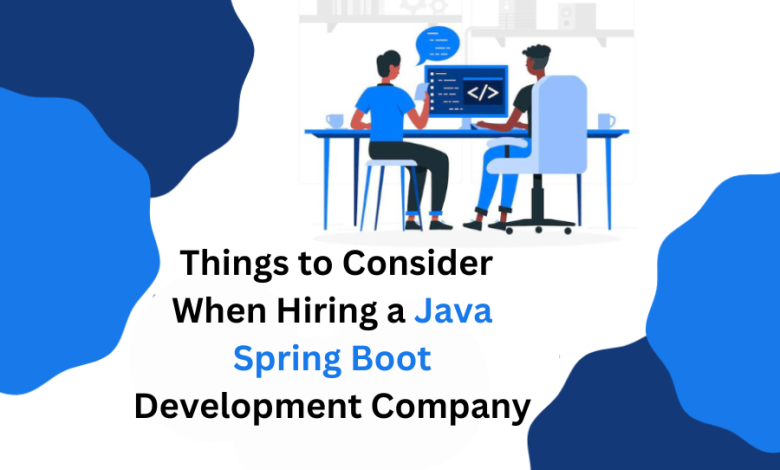Top Things to Consider When Hiring a Java Spring Boot Development Company

Hiring the right java spring boot developer can help your company save time, money, and resources. However, you need to make sure that the team you choose is a good fit for your company’s culture.
Here are the top things to consider when hiring a Java spring boot development company for business:
Expertise in Microservices
Microservices are a distinct style of development that breaks down an application into a set of smaller services. These services run independently, communicate with clients over lightweight protocols, and are often connected via APIs.
The key advantage of microservices is that they enable small teams to update their components without affecting the rest of the app. This makes it easier to identify hot services, scale them independently, and improve the application overall.
Microservices also decentralize data storage decisions – a common approach in monolithic applications is to use a single database, but enterprise-scale microservices often prefer a range of different databases for each service. This is a strategy known as Polyglot Persistence.
Cloud-based Apps
Cloud-based apps offer a consistent user experience across devices and browsers. They’re a great choice for businesses looking to increase productivity and streamline operations.
Typically, cloud-based applications use web browsers to access data stored in a remote server base, using APIs for processing logic. They can be accessed on any device with an internet connection, and are scalable to meet growing business needs.
When choosing a java spring boot development company, you should ask about their experience with building cloud-based apps. These experts will help you choose the right technology for your project and ensure that it meets your business requirements.
API-driven Development
API-driven development is a strategy that prioritizes designing and building APIs before creating the rest of an application. This approach ensures that APIs are the cornerstone of your software delivery pipeline, and that teams can focus on building and testing them without compromising the overall design and functionality of your applications.

This strategy also helps reduce the time it takes to build apps because teams can work on multiple APIs at once and merge their code easily into a single application. Additionally, it allows for continuous integration and deployment because developers can test and monitor API dependencies in real time.
However, before hiring a java spring boot developer, make sure that they have experience in this framework. It is one of the most demandable frameworks for developing microservices and making web apps faster.
Experience in Object-Oriented Programming
Object-oriented programming (OOP) is an approach to software development that allows developers to organize their code into manageable chunks — classes and objects — which they can access as needed without bogging down their software with excess code. This helps improve performance, reduce stress, and make it easier for developers to build powerful, reliable software.
During the hiring process, consider whether the Spring Boot developer you’re considering has experience in object-oriented programming. Object-oriented programming techniques include encapsulation, abstraction, inheritance, polymorphism, and user-defined types.
Another key skill to look for is solid unit testing capacity. Having an experienced Java spring boot developer who can test your codes properly makes a huge difference in your project’s success.
Experience in DevOps
DevOps is a software development process that aims to speed up the workflow and reduce costs. It also increases transparency and collaboration between software developers and IT operations personnel.
When you’re hiring a Java spring boot developer, it’s important to consider their experience in DevOps. This will ensure they have the right skills and tools for implementing their projects.
A developer with DevOps experience can handle all phases of the lifecycle, including development, coding, testing, and deployment. They can automate many of these processes, which can save time and money.
The key to DevOps is a collaborative IT culture that allows teams to work together throughout the product lifecycle. This results in higher productivity and better business outcomes.




